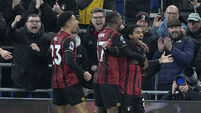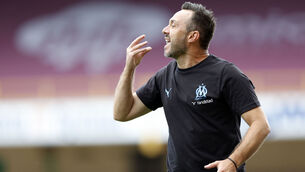Proof football really is a global game
Fair play to Branko though, no bluff here. He could delve deep into the game’s innards too, describing how Bray had gone a man down, then two goals down before scoring a consolation goal late on.
Branko’s beaming smile when imparting this info betrayed the fact that, while he is a part-time receptionist, he is a full-time bookmaker and one with a web of contacts around Europe feeding him information on the most unlikely of footballing outposts.














